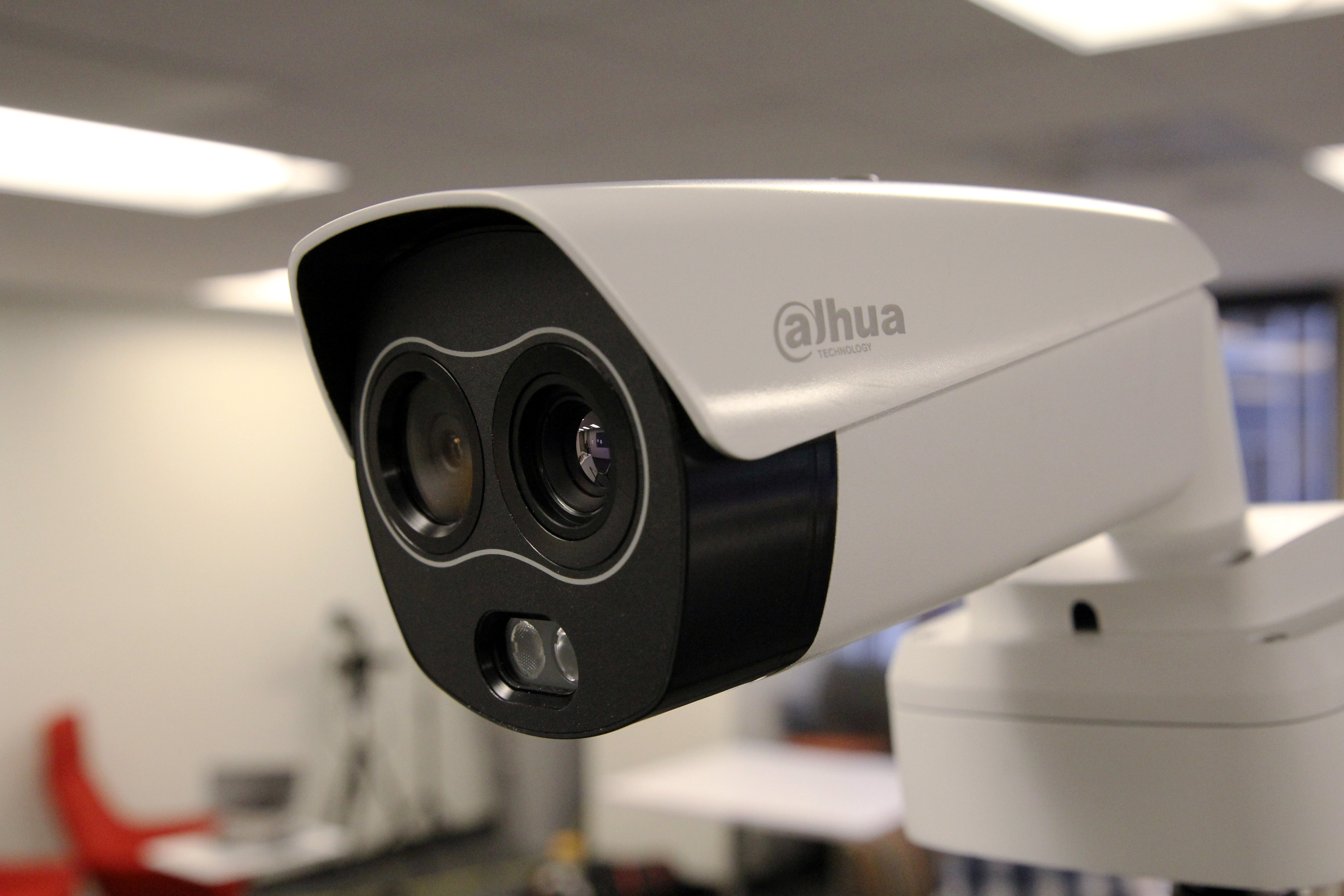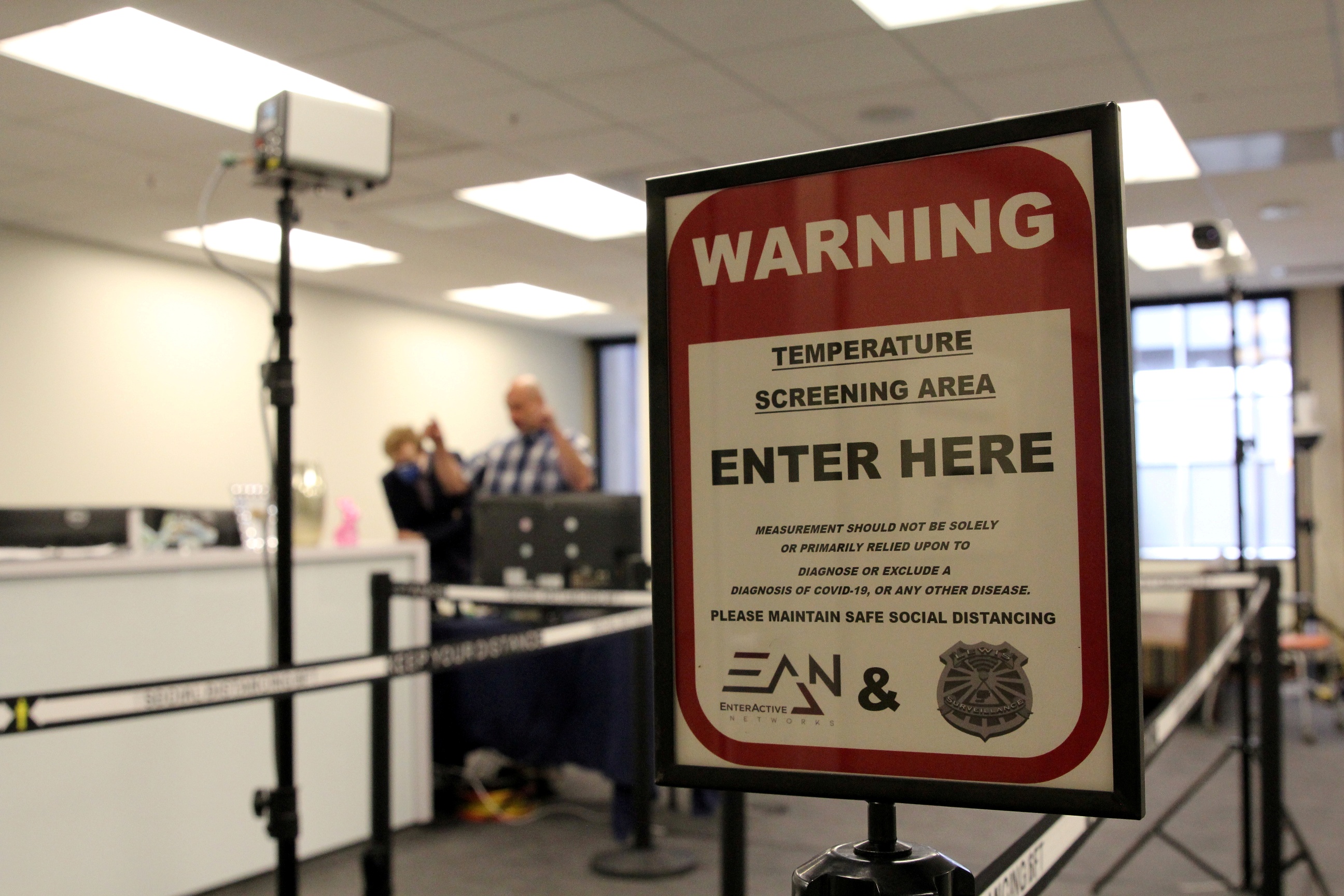Amazon Turns to Chinese Firm on US Blacklist to Meet Thermal Camera Needs
NEW YORK/SAN FRANCISCO—Amazon.com has bought cameras to take the temperature of workers during the C..
NEW YORK/SAN FRANCISCO—Amazon.com has bought cameras to take the temperature of workers during the CCP virus pandemic from a firm the United States blacklisted over allegations it helped China detain and monitor Uyghurs and other Muslim minorities, three people familiar with the matter told Reuters.
Chinas Zhejiang Dahua Technology Co Ltd shipped 1,500 cameras to Amazon this month in a deal valued close to $10 million, one of the people said. At least 500 systems from Dahua—the blacklisted firm—are for Amazons use in the United States, another person said.
The Amazon procurement, which has not been previously reported, is legal because the rules control U.S. government contract awards and exports to blacklisted firms, but they do not stop sales to the private sector.
However, the United States “considers that transactions of any nature with listed entities carry a red flag and recommends that U.S. companies proceed with caution,” according to the Bureau of Industry and Securitys website. Dahua has disputed the designation.
The deal comes as the U.S. Food and Drug Administration warned of a shortage of temperature-reading devices and said it wouldnt halt certain pandemic uses of thermal cameras that lack the agencys regulatory approval. Top U.S.-based maker FLIR Systems Inc has a weeks-long order backlog, forcing it to prioritize products for hospitals and other critical facilities.



Amazon declined to confirm its purchase from Dahua, but said its hardware complied with national, state, and local law, and its temperature checks were to “support the health and safety of our employees, who continue to provide a critical service in our communities.”
The company added it was implementing thermal imagers from “multiple” manufacturers, which it declined to name. These vendors include Infrared Cameras Inc, which Reuters previously reported, and FLIR, according to employees at Amazon-owned Whole Foods who saw the deployment. FLIR declined to comment on its customers.
Dahua, one of the biggest surveillance camera manufacturers globally, said it does not discuss customer engagements and it adheres to applicable laws. Dahua said in a statement that it is committed “to mitigate the spread of the COVID-19” through technology that detects “abnormal elevated skin temperature—with high accuracy.”
The U.S. Department of Commerce, which maintains the blacklist, declined to comment. The FDA said it would use discretion when enforcing regulations during the public health crisis as long as thermal systems lacking compliance posed no “undue risk” and secondary evaluations confirmed fevers.
Dahuas thermal cameras have been used in hospitals, airports, train stations, government offices, and factories during the pandemic. International Business Machines Corp placed an order for 100 units, and the automaker Chrysler placed an order for 10, one of the sources said. In addition to selling thermal technology, Dahua makes white-label security cameras resold under dozens of other brands such as Honeywell, according to research and reporting firm IPVM.
Honeywell said some but not all its cameras are manufactured by Dahua, and it holds products to its cybersecurity and compliance standards. IBM and Chryslers parent Fiat Chrysler Automobiles NV did not comment.
The Trump Administration added Dahua and seven other tech firms last year to the blacklist for acting against U.S. foreign policy interests, saying they were “implicated” in “Chinas campaign of repression, mass arbitrary detention, and high-technology surveillance against Uyghurs, Kazakhs, and other members of Muslim minority groups.”
More than one million people have been sent to camps in the Xinjiang region as part of Chinas campaign to root out terrorism, the United Nations has estimated.
Dahua has said the U.S. administrations decision lacked “any factual basis.” The Chinese regime has denied the mistreatment of minorities in Xinjiang and urged the United States to remove the companies from the list.
A provision of U.S. law, which is scheduled to take effect in August, will also bar the federal government from starting or renewing contracts with a company using “any equipment, system, or service” from firms including Dahua “as a substantial or essential component of any system.”
Amazons cloud unit is a major contractor with the U.S. intelligence community, and it has been battling Microsoft Corp for an up to $10 billion deal with the Pentagon.
Top industry associations have asked Congress for a year-long delay because they say the law would reduce supplies to the government dramatically, and U.S. Secretary of State Mike Pompeo said last week that policies clarifying the implementation of the law were forthcoming.
Face Detection and Privacy
The CCP (Chinese Communist Party) virus, commonly known as novel coronavirus, has infected staff from dozens of Amazon warehouses, ignited small protests over allegedly unsafe conditions, and prompted unions to demand site closures. Temperature checks help Amazon stay operational, and the cameras—a faster, socially distant alternative to forehead thermometers—can speed up lines to enter its buildings. Amazon said the type of temperature reader it uses varies by building.
To see if someone has a fever, Dahuas camera compares a persons radiation to a separate infrared calibration device. It uses face detection technology to track subjects walking by and make sure it is looking for heat in the right place.

